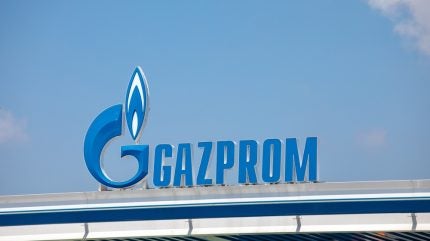
Russian oil and gas company Gazprom’s average daily natural gas supplies to Europe in July reached their highest this year, up 5.7% compared with a year ago and 12% from June, according to Reuters.
The calculations, based on data from the European gas transmission group Entsog and Gazprom’s daily reports on gas transit via Ukraine, showed average daily pipeline exports increased to 91.5 million cubic metres (mcm) in July 2024 from 86.6mcm in July 2023 and 81.8mcm in June.

Discover B2B Marketing That Performs
Combine business intelligence and editorial excellence to reach engaged professionals across 36 leading media platforms.
The month-on-month increase is a result of the end of maintenance on the Turkstream pipeline from Russia to Turkey, which began in 2017, and a seasonal increase in demand as utilities began injecting gas into storage ahead of winter.
So far in 2024, Gazprom’s natural gas exports to Europe have amounted to 18.3bcm. Annual flows in Europe peaked in 2018–19 at between 175bcm and 180bcm.
According to Reuters, Russia supplied a total of around 63.8bcm of gas to Europe by various routes in 2022. Volumes decreased by 55.6% to 28.3bcm in 2023, which was the last time Gazprom published its own monthly statistics.
In 2023, Gazprom recorded its first annual loss since 1999 after gas exports to Europe fell, costing the company Rbs629bn ($6.9bn).

US Tariffs are shifting - will you react or anticipate?
Don’t let policy changes catch you off guard. Stay proactive with real-time data and expert analysis.
By GlobalDataWhile Europe continues to depend on gas supplies from Gazprom, the state-owned company’s contracts with some European nations are increasingly being scrutinised as the Russo-Ukrainian war enters its third year.
In June, an arbitration tribunal allowed German energy company Uniper to terminate its long-term gas supply relationship with Gazprom and awarded the company more than €13bn ($14.19bn) in damages for non-delivery of gas.
Following in Germany’s footsteps, Austrian Energy Minister Leonore Gewessler in July proposed a legal diversification requirement from the country’s contract with Gazprom. Until May 2024, Austria received 90% of its gas via a pipeline from Russia.
On 10 July, Bulgaria’s state gas company, Bulgargaz, also commenced arbitration proceedings against Gazprom, seeking compensation for an alleged breach of contract.





